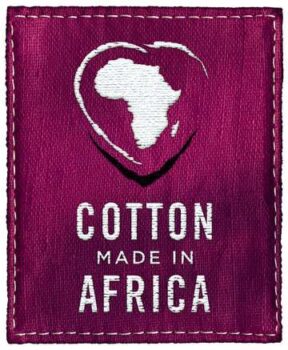 Cotton made in Africa (CmiA), which connects African small-scale farmers with trading companies and fashion brands throughout the global textile value chain, has revealed its revised CmiA standard featuring new criteria and requirements is a success.
Cotton made in Africa (CmiA), which connects African small-scale farmers with trading companies and fashion brands throughout the global textile value chain, has revealed its revised CmiA standard featuring new criteria and requirements is a success.
CmiA points out in its 2022 Aggregated Verification & Implementation Report excellent results were achieved in the categories of input prefinancing, risk reduction for crop protection, and activities pursuing better working conditions.
However, it says there is also some room for improvement as the cotton companies achieved average results in meeting their obligation to continually improve their CmiA performance. The organisation says that with further development, better results are possible.
The report also reflects positively on the performance of measures for soil health and soil conservation.
In fact, last year, training material was developed for farmers to optimise performance in the areas of biodiversity and water management, and trainers received instruction in improving soils through methods including compost, biochar, and bokashi.
CmiA explains that following the extensive revision of its standard in 2020, this report is the first of its kind to analyze the field and ginnery-level implementation of the latest edition of the standard, CmiA Standard Vol. 4.
In addition to offering an overview of CmiA and CmiA organic cotton production in the 2021–2022 season, the report also focuses on various projects and events through which CmiA assisted partnering cotton companies in supporting small-scale farmers and in implementing the standard’s requirements.
The report’s primary focus, however, was on verification results.
“Our partners have already proven their reliability by fully implementing the criteria of CmiA Vol. 3.1. The latest results meet our expectations, but they also show that we can still work with our partners to make improvements,” says Elena Wahrenberg, the Verification Manager.





















